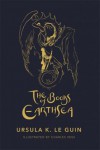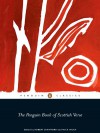Arbie's Unoriginally Titled Book Blog
It's a blog! Mainly of book reviews.
Currently reading

Ted Hughes is probably the greatest British post-WWII poet and possibly the best of the 20th Century. He would have been significant if he had only ever produced his debut collection, The Hawk in the Rain, in which he rescued nature observation from the Romantics, bringing a post-Darwinian sensibility to foxes, horses, hawks, jaguars and more. Subsequent collections continued this theme with robust, sometimes brutal language deployed to acheive his aims. The a-moral savagery of the Hawk Roosting represents a pinacle of this type of poem which he continued to write late into his career, despite the pessimism of the Monster constantly asked to "repeat that."
Poems about plants and animals are not all he will be remembered for - far from it: he brought us Crow, the Trickster God of Pacific Northwest native American tribes, creating myths for the 20th Century. Taking a contemporary Western cultural mileiu of secular anthropology, humanity viewed through the eyes of animal behaviourists, technology and evolution again, Hughes produces miniature legends of a confused, violent Black Beast and a God that dispairs of him, that encapsulate truths of our contemporary world neatly, many with a twisted, often acidicly ironic kink in their tail feathers.
In a further succesful mission to reclaim old territory, Hughes translated/adapted 21 Tales of Ovid, showing that narrative poetry in English, in contrast to the sleep-inducing couplets and ABAB rhymes of yore, can be dramatic, gripping and exciting. Anachronistic and imaginative imagery and swift narrative pace almost drag the reader through the Tales, with hardly a dull moment.
Another piece that reaches into the past and brings it to the present in a vital way is the translation of a key episode of Sir Gawain and the Green Knight, lost in the midst of The Rattlebag, an anthology of many poets, aimed at schools and edtied by Hughes. Just as Tolkien before him, Hughes demonstrates that it is possible to write vital verse in the Alliterative style, using modern English. Indeed Hughes' approach, just as with the Tales of Ovid, is difficult to break away from; we have been given a only a hint of what a full translation by Hughes would have been like, but it is a cruel one - it looks as if it would have been superior to any previous attempt, at the very least in its drama and liviliness.
Critics desperate to find some flaw or weakness in Hughes' genius complained that his poetry was impersonal; they were proved wrong with the posthumous publication of Birthday Letters, poems that deal directly with biographical aspects of their author's life.
The above does not represent the complete width of Hughes' poetical output, merely those themes that most appeal to me and show most strongly when taking this Collected Poems as a whole. It is also not the only book a Hughes fanatic or completist requires: he wrote poems for children not found here but rather given their own volume and also there are plays (novel and translated/adapted) and prose children's stories, as well as literary criticism and occassional essays.
Hughes had a habit of changing the titles and altering the lines(sometimes substantially, sometimes multiple times) of poems for re-publication in new contexts. These variations are all recorded in the back of the book, where all the explanatory notes he wrote and details of publication can also be found. A suplement printing in full all the versions of the poems in full that have such an evolutionary publication history would be handy for Hughes scholars and fanatics. The prose sections of Wodwo and Gaudete are not collected, nor are the photographs and illustrations that formed the inspiration for a number of sequences of poems. Apart from the Elment sequence, most readers will never have seen these illustrative materials as they were usually printed in limited editions by small presses. It is a shame that copywrite and other difficulties have not been overcome in order to be able to pront these in this volume; certainly in the case of Elmet, the photos add much to the appreciation of the poetry.
Ted Hughes is easily and by far my favourite poet and one of only two I have read in full; further, he is largely responsible for my taking any interest in poetry, other than Shakespeare, at all. His View of a Pig showed me that not all poetry is about "love and the Moon" and his observations of living animals, gales and other natural phenomena captured the reasons for my wonder at and fascination with those same phenomena. Two years' effort going through this volume has rewarded me with more than re-experiencing old favourites - I have found new favourites and a greater appreciation of the extent of Hughes' acheivement. This book stands as a monument to a genuine Genius.
 1
1










